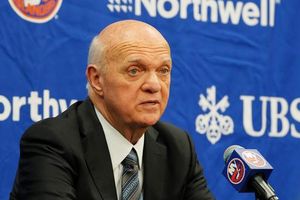Beyoncé Knowles-Carter, the multi-talented singer and actress, notable for her role in the movie "Obsessed," initially resisted taking on the lead role in the suspenseful 2009 thriller. According to producer Will Packer, her apprehension stemmed from a dissatisfaction with the original script. Packer's revelations came during his recent appearance on the popular late-night talk show "Watch What Happens Live" with Andy Cohen, where he detailed the journey to finally secure Beyoncé for the film.
"B[eyonce] taught me a lot about getting rejected because she told me no over and over again," Packer recalled on the show. He highlighted how Beyoncé graciously explained her reasons for turning down the role, a gesture that kept the lines of communication open and allowed for ongoing discussions about the film. Beyoncé portrayed Sharon Charles, who evolves from a caring mother to a fierce protector over the course of the film. Her character confronts the challenges posed by an obsessive stalker, played by Ali Larter, threatening the sanctity of her family life with husband Derek Charles, portrayed by Idris Elba.
After several attempts and significant revisions to the script, Packer finally found success. "I call it a fortuitous no. And, ultimately, on the sixth time, Beyoncé said yes, and that movie opened at No. 1," he said. The movie, directed by Steve Shill, became a box office hit, demonstrating that persistence pays off in Hollywood.
Interestingly, while discussing his experiences in the industry, Packer also delved into the production of the action heist movie "Takers," which also features Idris Elba. He revealed that the film almost faced significant hurdles before it even began shooting, due to a clash over stylistic choices between actor Paul Walker and the studio. Walker made headlines for wanting his character to dress in ripped jeans, a stark contrast to the studio's vision of suit and tie for the cast.
Describing the tension, Packer said, "Paul got into a huge fight with the studio on the first day of production because he didn’t like the look." He knew he had to intervene to mend the conflict: "I had to go in and apologize. I call this taking the thunder out. I said, 'Paul, it’s your first day on a Will Packer set. I apologize. However, we got here doesn’t matter. Every day from now forward is gonna be better.'" Thankfully, Walker responded positively and agreed to continue with the project, stating, "You know what? I get it. He’s a bad cop, he’s the good cop. I’m gonna do your movie, Will."
Packer's insights reflect how critical effective communication and adaptability are in the film industry. His encounters with both Beyoncé and Walker highlight the complexities of collaboration and creative expression among top talents. The stories from both films serve as powerful reminders of the challenges faced behind the scenes — communications, disputes over artistic vision, and the delicate negotiation process — that often remain unseen by the audience.
As it turns out, the determination of these artists and the able handling of potential conflicts led to two movies that not only found their way to screens but also achieved success in the competitive realm of Hollywood. Packer's experience thus far illustrates not just the necessity of persistence but also the importance of nurturing relationships in an industry known for its challenges and rejections.
Through all the obstacles, one common thread remains—both "Obsessed" and "Takers" resonated well with audiences, proving that behind every successful film is a journey filled with negotiation and often reworking of creative ideas.




